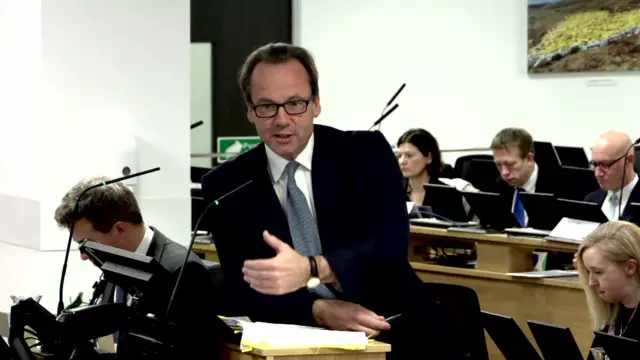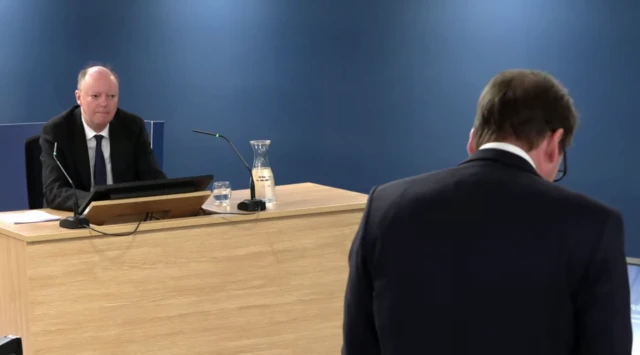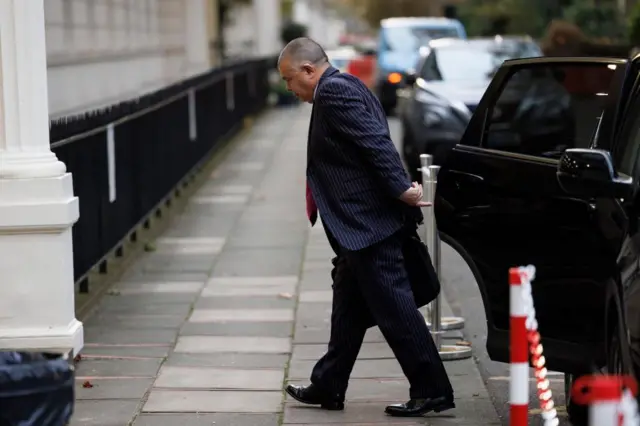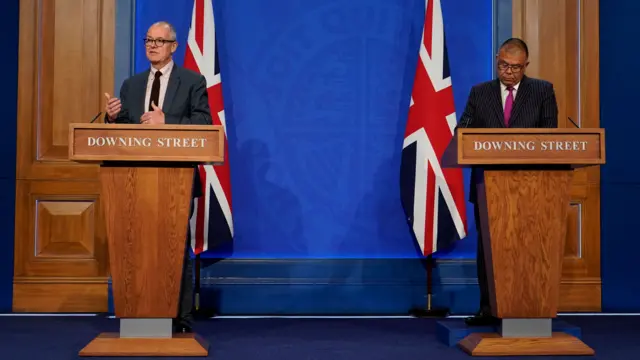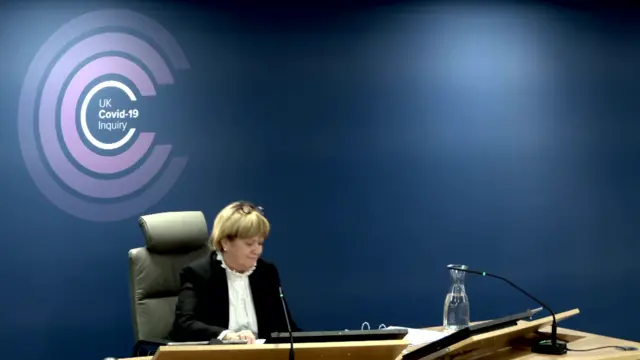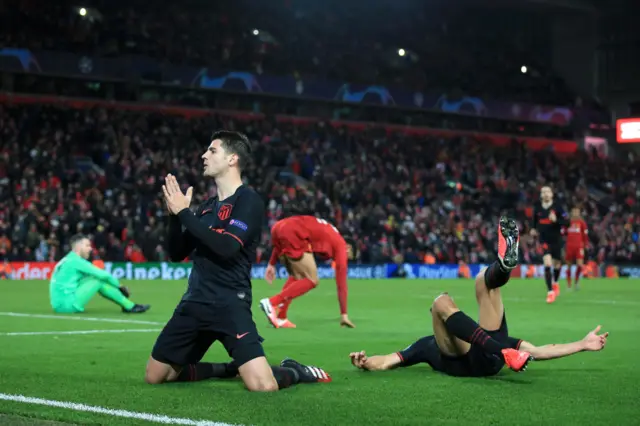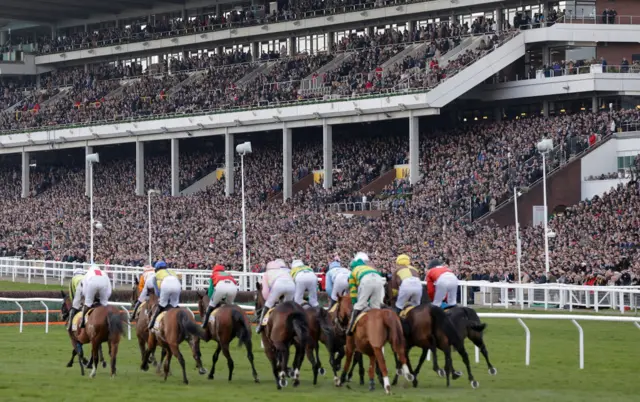Whitty admits poor communication on 'behavioural fatigue'published at 10:24 GMT 22 November 2023
Hugo Keith KC raises the topic of "behavioural fatigue" - when people stopped following Covid restrictions as they had lost patience.
A witness statement given to the inquiry by former PM Boris Johnson says he was told by Whitty in the early pandemic days that restrictions would test the "limits of human patience"
Whitty admits that his communications on this topic, including during the televised news conferences, were "really poor".
He says he was later "told off" by Sage for this, and consequently began to steer officials away from this concept.


